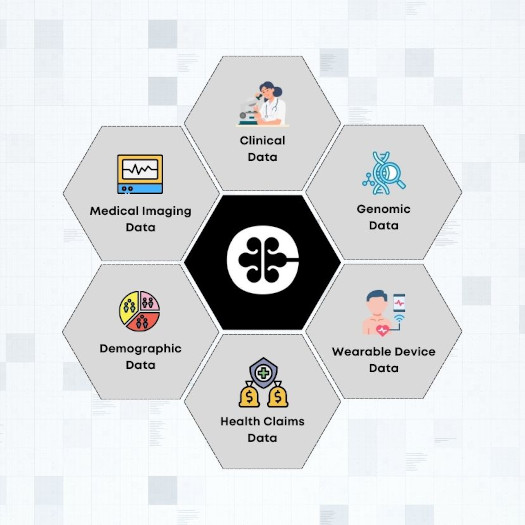The healthcare sector in Africa faces a myriad of challenges that hinder the delivery of quality care and limit access to essential services for millions of people. From diagnostic delays and errors to supply chain fragmentation and poor infrastructure, healthcare providers grapple with numerous obstacles that impact patient outcomes and public health.
CipherSense empowers healthcare institutions with AI-driven solutions that transform the way care is delivered, diagnoses are made, and treatment plans are personalized. By leveraging advanced AI algorithms, predictive analytics, and machine learning models, we help healthcare providers optimize operations, enhance patient care, and drive innovation in healthcare delivery.
Key Challenges with HealthCare in Africa
-
Millions of people in Africa lack access to quality healthcare services due to limited medical facilities, healthcare professionals, and medical supplies. This often results in delayed or inadequate care for patients, and poor health outcomes.
-
Patients in Africa often face long wait times for diagnostic tests and results, leading to delays in treatment and care. Additionally, diagnostic errors can occur due to limited access to medical expertise and resources, impacting patient outcomes.
-
Healthcare facilities in Africa often struggle with resource allocation, including medical supplies, equipment, and personnel. This can lead to inefficiencies in care delivery, increased costs, and challenges in meeting patient needs.
-
Inadequate infrastructure, such as lack of electricity, clean water, and sanitation facilities, hinders the delivery of quality healthcare services in Africa. This affects the ability of healthcare providers to deliver care and patients to access services.
How CipherSense is Transforming HealthCare
-
CipherSense’s AI models assist healthcare providers in diagnosing diseases more quickly and accurately by analyzing medical images, lab results, and patient histories. From identifying early signs of diseases like cancer and diabetes to detecting anomalies in medical scans, our AI-driven diagnostic tools empower healthcare professionals to deliver more precise care.
Benefits:
-
Accelerate diagnostic processes and reduce waiting times for patients.
-
Improve accuracy and reliability of diagnoses for better patient outcomes.
-
Support healthcare professionals with AI-powered decision-making.
-
Every patient is unique, and their treatment plans should reflect that. CipherSense’s AI analyzes patient data—ranging from genetic information to lifestyle factors—to help healthcare providers develop personalized treatment plans that lead to better outcomes. This approach optimizes care, enhances recovery times, and minimizes treatment costs.
Benefits:
-
Tailor treatment plans to individual patient needs for better health outcomes.
-
Improve patient satisfaction and engagement with personalized care.
-
Optimize medication and treatment regimens to reduce adverse effects.
-
Africa has been disproportionately affected by infectious diseases such as malaria, tuberculosis, and more recently, COVID-19. CipherSense’s AI platform uses predictive analytics to forecast disease outbreaks, helping governments and healthcare organizations prepare in advance. By analyzing real-time data on environmental conditions, population movement, and historical patterns, we provide valuable insights to mitigate the impact of infectious diseases.
Benefits:
-
Anticipate and respond to disease outbreaks before they become epidemics.
-
Allocate resources more effectively to prevent the spread of infectious diseases.
-
Improve public health outcomes by taking proactive measures to protect communities.
-
CipherSense helps healthcare facilities optimize operations by predicting patient inflows, managing inventory, and streamlining workflow. From reducing wait times in hospitals to ensuring the timely availability of medical supplies, AI-driven operational models enhance efficiency across healthcare systems.
Benefits:
-
Reduce patient wait times and improve service delivery.
-
Ensure the efficient use of medical supplies and resources.
-
Streamline hospital workflows for better patient care and satisfaction.



